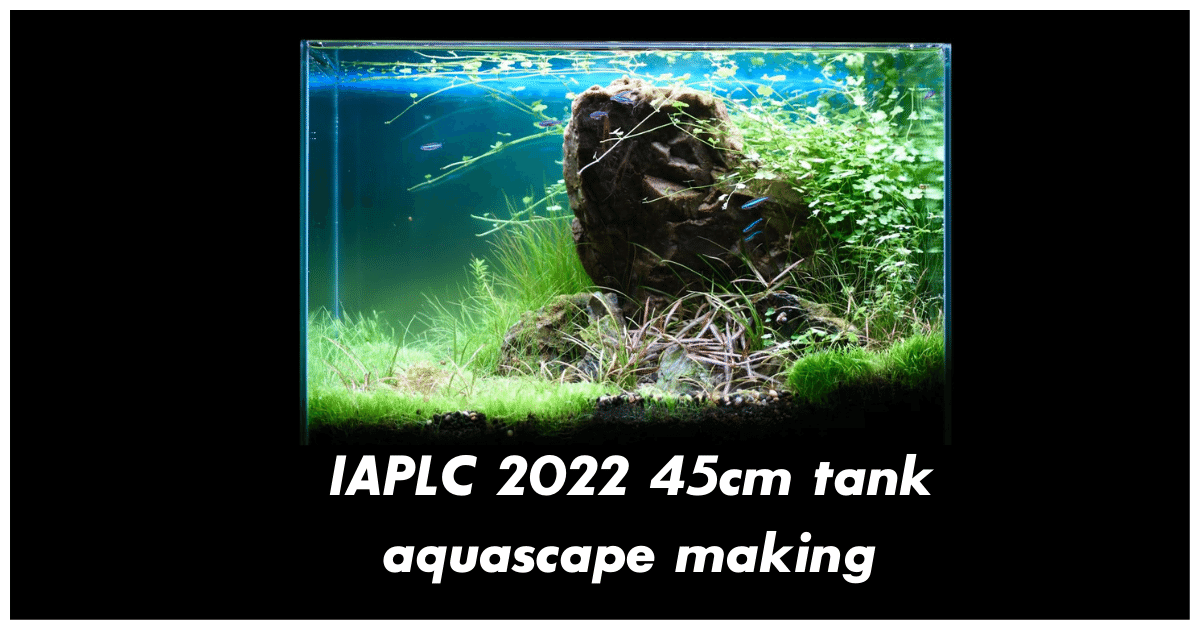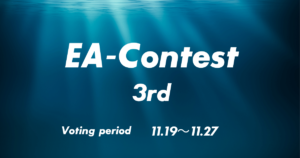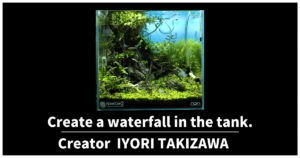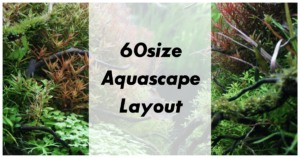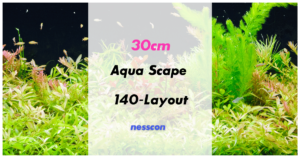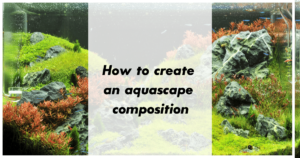The World Aquatic Plants Layout Contest (IAPLC2022) is a worldwide aquarium layout contest held annually. There is no entry fee and entries will be listed in the world rankings.
This article summarizes the start-up process of the works that participated in the World Aquatic Plants Layout Contest, the equipment used, the amount of co2 added, the amount of time the lights are on, and the amount of nutrients added. Please take a look at it as a reference for creating layout works.
Concept of 45cm tank and supplies used

| Concept | Aquascape with found stones |
|---|
Layout Information
| Tank size | 45cm(W)×27cm(D)×30cm(H) |
|---|---|
| Soli | Platinum Soil(8L) GEX River Blend (500ml) river gravel (300ml) |
| Filter | Tetla value AX Power Filter VAX-60 |
| LED Lighting | Chihiros wrbg2 450 |
| Intensity | 3,600lm |
| Lighting time | 8 hours |
| CO2 | 1 drop per 1second -8 hours |
| Frequency of water changes | Within 50% of 1 week/1 time |
Water plants used in layout

Put in aquascape Organisms
| Water Plants Used | |
|---|---|
| 1 | Utricularia Graminifolia |
| 2 | hygrophila sp.Álaguaia. |
| 3 | Echinodorus tenellus var.broad leaf |
| 4 | Hydrocotyle Tripartita |
| 5 | Eleocharis parvula |
| 6 | Eriocaulon sp..Malayatoor |
Animals in the water tank
| Paracheirodon simulans |
| Crossocheilus reticulatus |
| Indoplanorbis exustus sp.red |
| Anentome helena |
| Amazno shrimp |
Approximate cost of starting up an aquascape
| water plants | 46.63US $ |
|---|---|
| stone | 0 $ |
| soil | 32.28US $ |
| Equipment and Supplies | 502.12US $ |
| Total Expenses | 581.02US $ |
The cost is not very high because of the small variety of water plants used.
Only Eriocaulon sp. Malayatoor (Malayatoa) costs almost 21.58US $, so you can have it within 21.58US$ if you change to other water plants.
Equipment is expensive because we use RGB lights and integrated thermostats.
Changing to less expensive equipment would result in a cost savings of 10,000 to 20,000 yen.
IAPLC2022|Equipment and fixtures used for 45cm tank
Cost-effective 45cm tank
The aquarium used in this project is made by Acro, 45 cm (W) x 27 cm (D) x 30 cm (H).
Glass frames are available at Kotobuki and GEX, but we recommend Acro because it is consistently available at a lower price.
My tank has been in use for over 4 years now, so I would say it is durable enough.
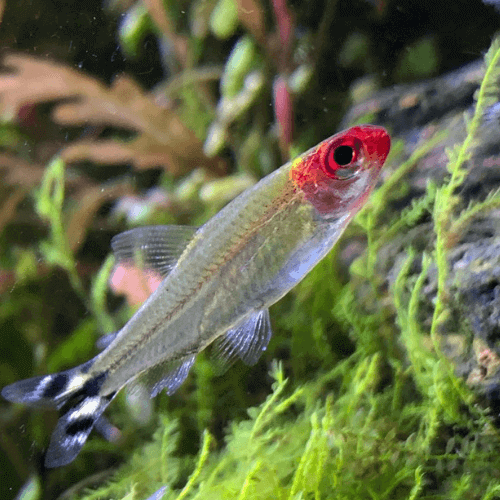
We plan to abandon this tank after this layout contest is over.
Supported by Value AX Power VAX60
Just the right filtration performance for a 45cm wide, 30cm deep tank.
I used it in my IAPLC tank last year, and it performed well when the water quality settled down, and even one water change per week was sufficient.
It has a good filtration capacity even with only one water change per week.
I also feel that leaving it alone for a year or so would not be a problem.
Because it is an underwater motorized system, it does not look good when mounted, but it is easy to install and remove and does not interfere with photography.
Temperature is controlled all year round
We use an integrated thermostat (heater needs to be attached separately).
Considering the duration of the aquascape contest, we only used the cooler for six months, but this year it was hot from around April, so we were able to take advantage of the cooler and were happy with the results.
The BK-C120 may be a bit extravagant for a 45 cm tank.
Luminaires (tank LED lighting) are on for 8 hours


For this 45cm tank, we used one Chihuros aquarium LED light wrgb2 450.
Chihiros wrgb2 450 is wide, and one unit can cover a depth of 27 cm.
Last year we used a combination of GEX Clear LED Power III and Chinese lights, but the growth and color ride were still very different.
Because of the very high light intensity, the lighting duration was set to 8 hours.
Chihiros wrbg2 450 light dimming looked most natural with everything set to max.
Use of adsorbent platinum soil
Platinum Soil, which absorbs impurities, was used.
The surface is about 3 cm thick and the back and right side of the stone is sloped by a significant amount of soil.
In addition, Oiso sand and grains of various sizes are used between the stones, creating a rolling stone (gravel) in the mountain stream.
Stone is treated with acid before use.




The stones used in this project were stones that were found.
The acid treatment is done in advance with Sunpol, and then soaked in fresh water to remove the odor.
The actual time for this process is about two weeks.
IAPLC2022|Starting up a 45cm tank layout
Stone Layout Process


In a normal layout, a coarse mat is placed on the bottom, but since more soil is used in this case, the mat is omitted. We use the method of pouring the soil even with the increased amount of backdrop.
The arrangement was photographed and roughly marked.


The black areas were painted black as a way of saying “we want to do something about it, don’t we?” because we felt uncomfortable with the space, as you can see from the photos presented earlier.


The modified layout.
You can see that the soil is raised toward the right edge, so the whole area is slightly sloped.
Since half of the tank is covered with stones, it is undeniable that the tank is a bit oppressive in size.
However, with a stone of this size, a 60cm aquarium may conversely feel the material is too small.
It is difficult to balance the size.


Oiso is then poured into the gaps between the assembled stones.If the container is too tightly packed, it will be difficult to plant water plants later on, so we were conscious of simply covering the top.


Cover the Oiso sand with an even finer layer of natural sand.
I thought that if I placed more and more sand from the top, the Oiso sand would be hidden, but I thought that it would be agitated when the water was poured and would get into the fine crevices, so I spread it without that much concern.


Planting Water Plants


| Water Plants Used | |
|---|---|
| 1 | Utricularia Graminifolia |
| 2 | hygrophila sp.Álaguaia. |
| 3 | Echinodorus tenellus var.broad leaf |
| 4 | Hydrocotyle Tripartita |
| 5 | Eleocharis parvula |
| 6 | Eriocaulon sp..Malayatoor |
The planting arrangement is seen from directly above.Waterlawn is laid out rather extensively because it is in the foreground.(It’s a bit of a growing figure.)
Echinodorus tenellus is inserted into the gaps between the masonry to create the image of weeds popping up from the rocks.Araguaia red sharpleaf hygro is planted around the mid-view of the parent stone because it turns reddish brown as it grows.
Since I know that Australian clover is a voluminous water plant, I placed it in a way that it would fill the gap in the right half of the plant nicely.
The rear view is planted with long hair grass and eriocaulon. I really would have preferred a social feather duster, but it could not be used for start-up.


Lights are not Chihiros yet. The filter media bag on the right is aeration. To prevent cloudiness, the filter bag and air are combined for about 3 days after starting.




Just put an air tube in a filtration bag like this and you’re done. It is recommended because it can be quite effective when filtration capacity is not stable.
IAPLC2022|Management of 45cm tank layout to completion
Large amount of tea moss


We had not done any water changes since start-up, and a large amount of brown moss had developed in 10 days.
However, this brown moss can be easily removed by sucking it out, and once the water quality stabilizes, it will disappear naturally, so it is rather easy to treat.




Remove what can be removed by hand, as it is difficult to remove completely if it is stuck to fine water plants (such as hair grass).


The shrimp eats the brown moss as soon as I put it in. However, I haven’t put them in yet because they seem to eat water plants as well.
By gradually increasing the frequency of water changes, the amount of brown moss also decreased. There is a little brown moss on the waterlawn. However, it is not that much to worry about.
Coral moss outbreak




Coral moss originates around the stone. Coral moss is not easily removed by water changes alone.
Coral moss is also difficult to remove by hand because it settles like a sticky substance. Please refer to a separate article on how to remove coral moss.
Introduction of organisms is approximately one month later.


The organisms were introduced about a month after the aquarium was started up. The introduced variety is green neon tetra.(I add chili peppers to prevent white spot disease.)


Green neon tetras can be seen moving about as they please when the lights are on, but at night they can be seen sleeping in dense groups.
Some of the green neons we had just introduced had white spot disease. Since we could not treat them with chili peppers, we used aguten, which does not affect water plants, to cure the white spot disease.
105th day, deemed complete and went to “Entry”.


It was April 30, 105 days after launch. Considering the application due date, I decided to take the photo because I thought the change would not be any different if I took a wait-and-see approach.
After photographing your work, simply enter it as usual. I am in the mood to see what this year’s report card will look like.
Every year we start up casually, without putting that much effort into it, but this year I think it is more organized than last year.
That said, most of the top entries have detailed gimmicks reminiscent of dioramas, so they exude a clunkiness in comparison.
Summary of the World Aquatic Plants Aquarium Layout Contest 2022
IAPLC2022 Result: 1607th place
It moved up a little from the last time, but still in the 1,000th place. As a trend, the aquarium size may be easier to balance if it is closer to a ratio of 1:2 or 2:3. 45 cm is a 4:3.5 ratio.
Also, as mentioned earlier, the selection of the parts that make up the layout was too large.
Next time, I would like to put together an image that can be composed of a number of parts, taking into account the size of the aquarium, while making the parts a little smaller.
I would also like to work a little more on the selection and placement of water plants. I would also like to try to make the tank one size larger, 60cm.
The world of water plants is an interesting place to look back and see “how the year went at the end of summer.” But nothing has progressed in the last few years.

